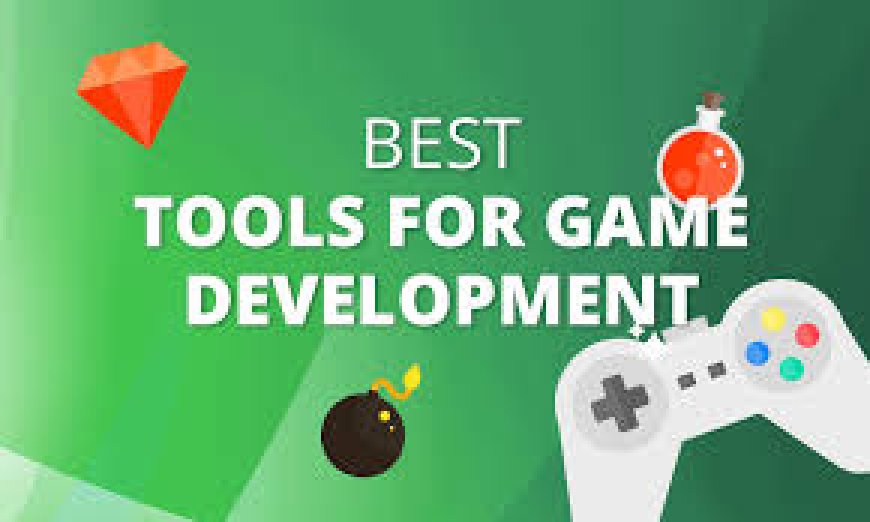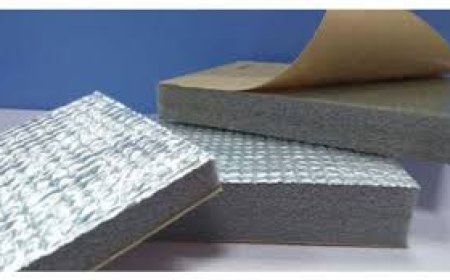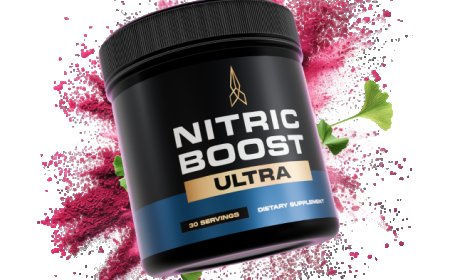best Tools for Game Development: Create Games Like a Pro
Discover the best tools for game development to bring your ideas to life. Learn how these tools can simplify and enhance your game creation process.

Best Tools for Game Development: Create Games Like a Pro
games have become a cornerstone of entertainment. From mobile apps to cutting-edge console experiences, the demand for immersive and engaging games is constantly on the rise. If you’ve ever wondered how these games are created, you’re in the right place! Whether you’re an aspiring developer or working with a game development company , understanding the right tools is crucial to turning your creative vision into reality.
What Are Tools for Game Development?
Tools for game development are software applications that help developers design, create, and test video games. These tools make the process easier by providing everything from coding support to graphic design and animation features. Without these tools, creating a game would be much harder and take much more time.
Why Do Developers Need Game Development Tools?
Before we explore specific tools, let’s understand why they’re important:
-
Save Time: Game development tools automate many complex tasks, like coding and rendering graphics.
-
Boost Creativity: These tools offer features that help bring unique ideas to life.
-
Improve Quality: Testing tools ensure that games run smoothly without bugs.
-
Make Collaboration Easy: Tools allow teams to work together more efficiently.
For beginners and professionals alike, the right tools can make all the difference.
The Best Tools for Game Development
Here’s a list of some of the most popular and beginner-friendly tools used in game development:
1. Unity
Unity is one of the most popular tools for game development, and for good reason! It’s versatile and beginner-friendly, making it perfect for 2D and 3D games.
-
Key Features:
-
Supports multiple platforms (PC, mobile, console, etc.).
-
Offers a vast library of assets.
-
Provides a visual editor for easy designing.
-
Example: Unity is used to create games like Among Us and Pokémon Go.
2. Unreal Engine
Unreal Engine is another powerful tool known for its stunning graphics. It’s widely used by professional developers and big companies.
-
Key Features:
-
High-quality visuals with real-time rendering.
-
Blueprints system for coding without writing complex code.
-
Free to use until your game earns revenue.
-
Example: Popular games like Fortnite and Gears of War were made with Unreal Engine.
3. GameMaker Studio
For those who want to create 2D games quickly, GameMaker Studio is an excellent choice. It’s beginner-friendly and doesn’t require advanced coding skills.
-
Key Features:
-
Drag-and-drop interface.
-
Ideal for creating simple and fun 2D games.
-
Affordable pricing for indie developers.
-
Example: Games like Hyper Light Drifter were developed using GameMaker Studio.
4. Blender
Blender is a free and open-source tool for creating 3D models, animations, and graphics. It’s widely used in game development for designing characters and environments.
-
Key Features:
-
Advanced modeling and sculpting tools.
-
Animation and rigging features.
-
Supports VR creation.
-
Example: Blender is often used for creating assets for games in Unity or Unreal Engine.
5. CryEngine
CryEngine is known for its ability to produce visually stunning games. It’s perfect for developers aiming to create realistic environments.
-
Key Features:
-
Real-time rendering and advanced lighting.
-
Built-in physics engine for realistic movements.
-
Offers a free version for indie developers.
-
Example: Games like Far Cry were developed using CryEngine.
6. Godot Engine
Godot Engine is a free, open-source tool gaining popularity among indie developers. It’s great for creating both 2D and 3D games.
-
Key Features:
-
Simple and intuitive interface.
-
Supports multiple programming languages.
-
Lightweight and fast.
-
Example: Many indie developers use Godot for creating unique games.
7. Visual Studio
Visual Studio is a coding environment that supports game development. It’s often used with tools like Unity or Unreal Engine.
-
Key Features:
-
Debugging tools to find and fix errors.
-
Supports multiple programming languages like C# and C++.
-
Easy integration with other game development tools.
8. Trello and Collaboration Tools
Game development isn’t just about coding and design. Tools like Trello help teams stay organized and track their progress.
-
Key Features:
-
Task management boards.
-
Team collaboration features.
-
Simple and easy-to-use interface.
-
Example: Many game development teams use Trello to divide tasks among members.
How to Choose the Right Tool for Your Game
Choosing the right tool depends on several factors:
-
Game Type: Are you creating a 2D or 3D game?
-
Budget: Some tools are free, while others may require a subscription.
-
Experience Level: Beginners may prefer tools like GameMaker Studio, while professionals may opt for Unreal Engine.
Tips for a Smooth Game Development Process
-
Start Small: Begin with a simple game idea and gradually improve your skills.
-
Learn the Basics: Understand programming and game design principles.
-
Use Tutorials: Many tools offer free tutorials to help you get started.
-
Test Frequently: Regular testing ensures that your game runs smoothly.
Also Explore: Quality Assurance in Casino Game Development: Ensuring a Flawless Launch
Conclusion
Creating games is a fun and rewarding journey. With the right tools, you can bring your ideas to life and create games that people will enjoy. Whether you’re working alone or with a team, these tools will make the process easier and more enjoyable.
Now that you know about the best tools for game development, why not try them out? Start your journey today and let your imagination run wild!
What's Your Reaction?



























